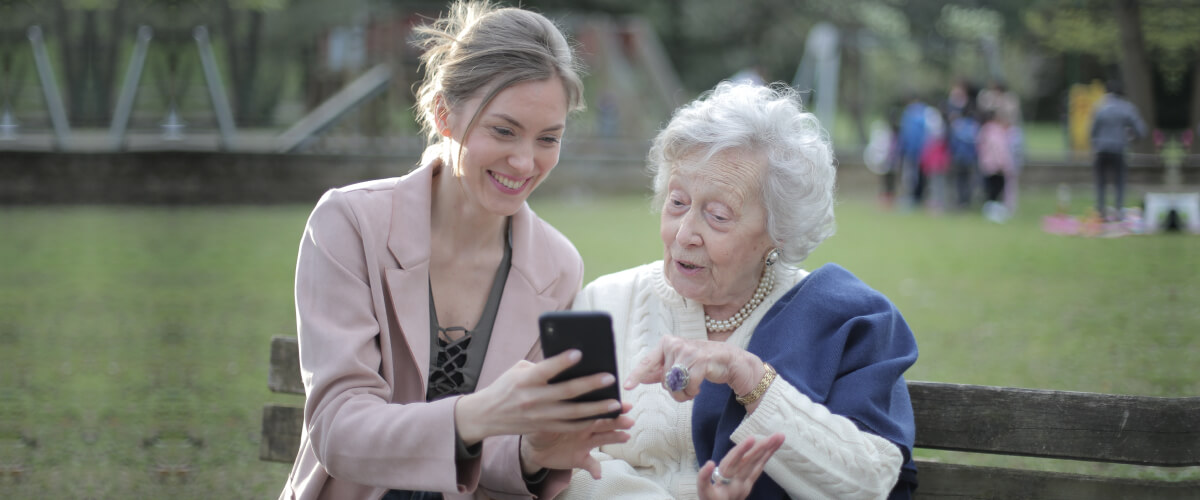In the midst of their responsibilities, caregivers may overlook their own well-being, leading to burnout and decreased quality of life. However, incorporating meditation and mindfulness practices into their daily routine can significantly benefit caregivers and improve their overall health and well-being.
What is Caregiving Stress?
Caregiving can be mentally, emotionally, and physically taxing. The responsibilities of caring for another person, managing their medical needs, and balancing personal life can create a constant state of stress and pressure. Caregivers often neglect their own needs, which can lead to negative consequences for their mental and physical health.
Read More: 7 Tips for Dealing with Caregiver Stress
7 Benefits of Meditation and Mindfulness for Caregivers:
Meditation and mindfulness for caregivers are powerful practices that help them cultivate awareness, focus, and relaxation. These techniques involve training the mind to be present in the current moment, without judgment or attachment to thoughts and emotions. By incorporating meditation and mindfulness into their daily routine, caregivers can experience numerous benefits that positively impact their well-being.
1. Reduced Stress and Anxiety:
Meditation and mindfulness for caregivers have been shown to reduce stress and anxiety levels significantly. By focusing on the present moment, caregivers can temporarily detach from their worries and concerns. Regular meditation practice allows caregivers to develop a sense of inner calm and tranquility, enabling them to handle stressful situations more effectively.
2. Improved Emotional Well-being:
Caregivers often experience a wide range of emotions, including sadness, frustration, and guilt. Through meditation and mindfulness, caregivers can develop emotional resilience and cultivate a sense of acceptance. These practices help caregivers process their emotions more effectively, promoting emotional well-being and stability.

3. Enhanced Patience and Compassion:
Meditation and mindfulness practices promote qualities such as patience, compassion, and empathy. By learning to be present and non-reactive, caregivers can develop a deeper understanding of their loved ones’ needs and challenges. This increased empathy allows caregivers to provide better support and care, strengthening their relationships.
4. Increased Self-Care and Resilience:
Caregivers often prioritize the needs of others and neglect their own well-being. Meditation and mindfulness for caregivers encourage self-care and self-compassion, reminding them of the importance of attending to their own needs. By taking time for themselves, caregivers can recharge and develop greater resilience, enabling them to better handle the demands of caregiving
5. Better Physical Health:
Chronic stress and caregiving responsibilities can take a toll on caregivers’ physical health. However, meditation and mindfulness have been linked to numerous physical health benefits. These practices can lower blood pressure, improve sleep quality, boost the immune system, and reduce the risk of stress-related illnesses. By incorporating meditation and mindfulness into their routine, caregivers can enhance their overall physical well-being.
6. Strengthened Relationships:
Caregiving can strain relationships due to the emotional and physical demands involved. Meditation and mindfulness help caregivers cultivate open communication, active listening, and empathy, which are essential for maintaining healthy relationships. By practicing these techniques, caregivers can foster stronger connections with their loved ones and reduce potential conflicts.
Read More: How to Build a Trusting Patient-Caregiver Relationship
7. Improved Focus and Cognitive Function:
Caregiving requires attention to detail and the ability to multitask effectively. Meditation and mindfulness practices enhance focus, concentration, and cognitive function. By training the mind to be present and focused, caregivers can improve their ability to manage tasks, make informed decisions, and respond to challenges more efficiently.

Tips for Incorporating Meditation and Mindfulness into Caregiving:
- Start with short meditation sessions: Begin with just a few minutes of meditation each day and gradually increase the duration as you become more comfortable.
- Find a quiet space: Create a calm environment where you can meditate without distractions.
- Practice deep breathing: Incorporate deep breathing exercises into your meditation practice to promote relaxation and stress reduction.
- Use guided meditation apps or resources: Utilize guided meditation apps or online resources specifically designed for caregivers to assist you in your practice.
- Establish a routine: Set aside dedicated time each day for meditation and mindfulness.
- Practice self-compassion: Be kind to yourself and recognize that meditation is a skill that takes time and patience to develop.
- Seek support: Join a caregiver support group or seek professional assistance to connect with others who understand your experiences and can provide guidance.
Read More: Overcoming Caregiver Issues: 14 Common Challenges and Effective Solutions
Conclusion:
Meditation and mindfulness offer invaluable benefits for caregivers. By incorporating these practices into their daily routine, caregivers can experience reduced stress levels, improved emotional well-being, enhanced patience and compassion, increased self-care and resilience, better physical health, strengthened relationships, and improved focus and cognitive function. Taking care of oneself is essential to providing the best care to others, and meditation and mindfulness provide the tools for caregivers to prioritize their own well-being.
Want to Learn More?
ConsidraCare’s caregivers for seniors are trained to offer professional support and companionship to seniors. Please reach out to us at wecare@considracare.com or call us at 1-855-410-7971.
FAQ’s
1. What is mindfulness meditation practice?
Mindfulness meditation is a form of meditation that involves bringing one’s attention to the present moment without judgment. It is rooted in Buddhist traditions but has gained popularity in secular contexts. During mindfulness meditation, individuals focus on their breath, bodily sensations, thoughts, or external stimuli, cultivating a non-reactive and accepting awareness of the present moment. The practice encourages observing thoughts and emotions without getting caught up in them, which can lead to increased clarity, emotional resilience, and overall well-being.
2. What are 3 reasons mindfulness is important?
a) Stress reduction: Mindfulness practice has been shown to reduce stress levels by promoting relaxation and helping individuals develop healthier responses to stressful situations. It allows people to observe their thoughts and emotions without becoming overwhelmed by them.
b) Improved mental well-being: Mindfulness can enhance mental well-being by reducing symptoms of anxiety and depression, increasing self-awareness, and promoting a positive outlook. It encourages individuals to cultivate a non-judgmental and compassionate attitude towards themselves and others.
c) Enhanced focus and productivity: Regular mindfulness practice can improve concentration and focus, leading to increased productivity. By training the mind to stay present and resist distractions, individuals can become more efficient and effective in their daily tasks.
3. What are the 3 signs of caregiver stress?
a) Emotional exhaustion: Caregivers experiencing stress may feel overwhelmed, emotionally drained, or constantly fatigued. They may find it challenging to manage their own emotions or have a reduced ability to empathize with others.
b) Increased irritability or impatience: Stress can manifest as irritability, mood swings, or a short temper. Caregivers may find themselves becoming easily frustrated or snapping at others more frequently.
c) Physical symptoms: Prolonged caregiver stress can lead to physical symptoms such as headaches, changes in appetite or sleep patterns, muscle tension, or frequent illnesses.
4. How do I take care of myself as a caregiver?
Taking care of yourself as a caregiver is crucial to maintain your well-being and provide the best possible care to others. Here are some suggestions:
a) Seek support: Reach out to family, friends, or support groups who can provide emotional support and understanding. Don’t hesitate to ask for help when needed.
b) Take breaks: Schedule regular breaks or respite care to give yourself time to rest and recharge. It’s essential to have time for activities you enjoy and to take care of your own physical and mental health.
c) Prioritize self-care: Engage in activities that promote relaxation and self-care, such as exercise, meditation, hobbies, or spending time in nature. Eat well-balanced meals, get enough sleep, and maintain regular medical check-ups.
5. What is caregiver syndrome?
Caregiver syndrome, also known as caregiver burnout or caregiver stress syndrome, refers to a state of physical, mental, and emotional exhaustion experienced by individuals providing long-term care for someone, typically a family member, who is ill, disabled, or elderly. Caregivers may experience a range of symptoms, including chronic fatigue, sleep disturbances, anxiety, depression, and feelings of isolation. Caregiver syndrome can have a significant impact on the caregiver’s overall well-being and may require professional support and self-care strategies to manage effectively.





